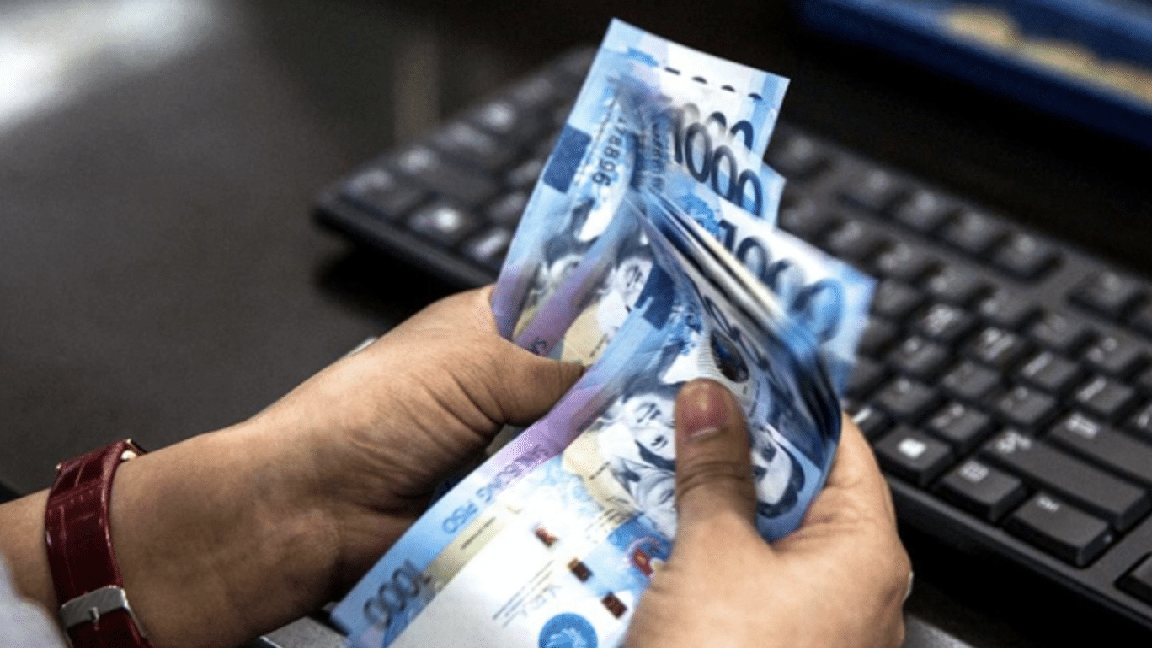The national government’s running debt stock skyrocketed to a fresh P11.642 trillion as of end-August 2021, on the back of increased fund- raising efforts to boost state coffers amid the continuing Covid-19 pandemic, data released Thursday by the Bureau of the Treasury (BTr) shows.
Declining revenue collections and a stagnant economy caused by the pandemic and its lockdowns forced government debts to balloon to a record high P11.6 trillion, supposedly to manage the health crisis and provide people with financial support during the lockdowns.
The national government’s running debt stock skyrocketed to a fresh P11.642 trillion as of end-August 2021, on the back of increased fund- raising efforts to boost state coffers amid the continuing Covid-19 pandemic, data released Thursday by the Bureau of the Treasury (BTr) shows.
As of end-August, the government's outstanding debt rose by 0.28 percent or P32.05 billion from P11.61 trillion recorded as of end-July 2021.
Year-on-year, the debt balance increased by 21.1 percent from P9.615 trillion as of end-August 2020.
The Treasury attributed the increase to “domestic debt issuance as part of government financing.”
Of the total debt stock, 29.4 percent was sourced overseas while 70.6 percent were local borrowings.
Finance chief Carlos Dominguez III earlier defended the uptick in the country’s programmed debt, which is expected to hit the internationally recommended threshold of 60 percent proportion of gross domestic product by 2022.
Only temporary
“I would like to emphasize again that the increase in our debt level is only temporary. It did not stem from profligate public spending, but rather resulted from a universal shock that deteriorated the financial positions of almost all countries around the world,” Dominguez told a House budget deliberation on the proposed P5.024 trillion national budget for 2022.
In particular, the government’s domestic debt totaled P8.22 trillion, up 1.2 percent or by P100.7 billion from the end-July 2021 level of P8.119 trillion.
This resulted from “the net issuance of government securities,” the BTr said.
Foreign borrowings stood at P3.42 trillion, or 2 percent lower (P68.65 billion) from end-July 2021’s P3.49 trillion.
.
“The lower figure was due to the net repayment of foreign loans amounting to P34.22 billion,” the Treasury said.
“Meanwhile, the impact of both local and third currency fluctuations against the US dollar further lowered the peso value of external obligations by P32.04 billion and P2.39 billion, respectively,” it added, noting that the peso strengthened against the greenback from P50.223: to a dollar as of end-July to P49.762:$1 as of end-August.
ECQ impact
Economist Michael Ricafort of Rizal Commercial Banking Corp. said the latest increase in the country’s debt stock “could still reflect the adverse economic impact of the two-week ECQ (enhanced community quarantine) followed by MECQ (modified ECQ) in NCR (National Capital Region) that reduced business/economic activities, reduced the government’s tax revenue collections, increased government spending especially on social amelioration and other Covid-19 programs.”
“Thus, lockdowns tend to widen the country’s budget deficit that in turn, increases the need for the government to borrow more to finance the budget deficit, and adds to the country’s debt stock,” Ricafort said.
Ricafort said the shift to granular lockdowns would be a “de facto” measure to re-open the economy amid increased vaccination as Metro Manila is already well into the population protection threshold.
“This, further justifies further re-opening the economy and reducing the lockdowns, increasing the government’s tax revenue collections, reducing the government’s spending on various Covid-19 programs, narrowing the budget deficit, and reduces the need for new government borrowings that add to the government’s debt stock,” Ricafort added.
Increase revenue collections
Economic think-tank IBON Foundation has called for a wealth tax which it estimated would raise some P467.1 billion in revenue for the government’s social services and welfare programs.
IBON said the richest 1 percent of the Philippine population — estimated by the government at 109.035 million — holds at least 40 percent of the country’s wealth.
“Taxing the super-rich is an effective way to raise much-needed funds for expanding social and economic services while reducing inequality,” the group stated.
IBON estimated there are 2,919 Filipino billionaires with a cumulative wealth of P8.1 trillion. This translates to less than 0.003 percent of the population holding 16 percent of the country’s wealth.
The group said taxing the billionaires with a wealth tax of 1 percent of wealth over P1 billion, 2 percent over P2 billion, and 3 percent over P3 billion would raise some P467.1 billion.
Tags: #foreigndebt, #economy, #Covid19, #BureauOfTheTreasury

